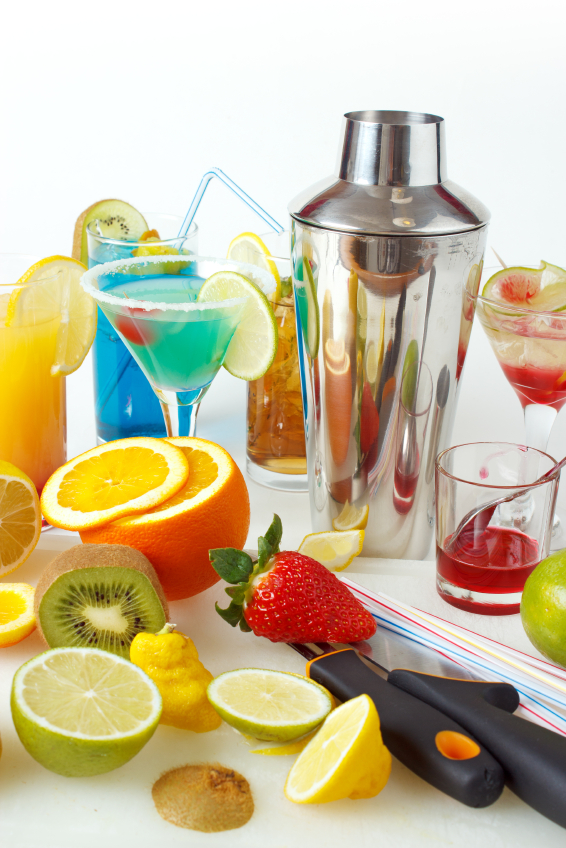
Understanding “Complementary Fresh Fruits” and Other Oddities
By Jerry Farrell, Jr.
Every day I answer legal questions related to the sale of alcoholic beverages. Sometimes the questions are simple enough to answer without cracking open the law books. Other times, the question is complex enough that getting out my dog-eared copy of the Connecticut Liquor Control Act makes sense.
When I do that, I am reminded how simply strange some parts of that Act are. I had one of those moments when I came across the term “complementary fresh fruits” jumping off the page of the latest revision of the Act. I then thought there are two other helpful clarifications around current laws.
What Fruit: Package Stores Can Sell Additional Items
I came across the term “complementary fresh fruits” when reviewing some changes that the Connecticut legislature recently made to what non-alcoholic items package stores may sell. In addition to items that they have been able to sell for years, such as cigarettes, magazines, bar utensils, and non-alcoholic beverages, package stores can now offer four new items to their customers: cheese, crackers, olives and “complementary fresh fruits used in the preparation of mixed alcoholic beverages.”
Certainly I can’t be the only person who read that phrase in the law and found it very strange. What does it mean? Does complementary mean that the fruit has to somehow add to, or “jazz up” a mixed alcoholic drink? Doesn’t a fruit garnish always complement a tropical drink? What if the fruit is jazzing up a bottle of beer or a glass of wine? Does that mean the package store has to ask the customer if the lemon or lime in question will be used for a mixed alcoholic drink as opposed to beer or wine? Must they deny the sale if the lemon or lime is headed in the direction of beer or wine? You get the drift.
The legislature could have just used the phrase “fresh fruits” and left out “complementary” and “used in the preparation of mixed alcoholic drinks,” since both those terms get more and more meaningless the more you examine them. I have a hard time thinking of any kind of fresh fruit that one could not make an argument could be part of a mixed alcoholic drink. I therefore think the Liquor Control Act allows a package store to sell any fresh fruit it pleases.
Gambling: Still an Issue
It continues to surprise me there are some liquor establishments that are not aware that they cannot organize and offer to the public any form of gambling. A liquor establishment cannot organize a poker night, nor have any type of sports pool, for example. Some licensees say “but the establishment doesn’t get a cut, therefore it shouldn’t matter.” That isn’t the way the state views it. When the establishment organizes the gambling, whether or not it gets a “cut,” the state views the establishment as indirectly benefiting through additional customers who will come to that establishment to participate in the poker night or sports pool.
Remember: Your License Expires
Once an applicant has received their new liquor license, or an existing licensee has received their renewed license, they sometimes forget to do two key things. The first thing: each license has to be filed with the Town Clerk of their municipality, before they begin business. As it says right on the license, the license is not good if it hasn’t been filed with the Town Clerk. Regrettably, I see many liquor licensees forgetting to take this critical step.
The second key thing that licensees fail to do: put their license expiration date on their calendar. It’s important because the notice may get lost in the mail. During the years I served as Chairman of the Liquor Control Commission, I certainly did hear from licensees who said that they never received notice that it was time to renew their license, and the expiration date came and went with them unaware of it, and continuing to sell alcohol.
Given that the postal service is a human institution, I am certain that some were telling me the truth and the mail had gone astray. When I hand my clients their license, I strongly urge them to get the expiration date on their calendar. If the mail fails to deliver, the licensee sees the date coming and can’t miss this critical step.
Jerry Farrell, Jr. served as Chairman of the Connecticut Liquor Control Commission from 2006 to 2011. Today, he is an attorney in private practice, focusing on liquor licensing law. He can be reached at jerry@ctliquorlaw.com. This column is not intended to be legal advice; consult an attorney for answers to your specific questions and situation.



